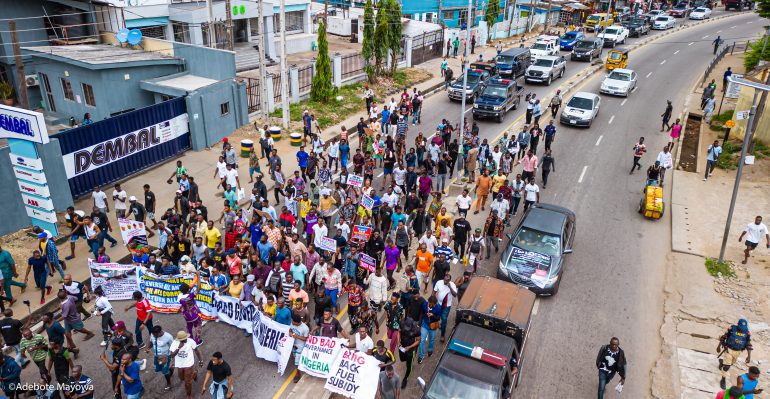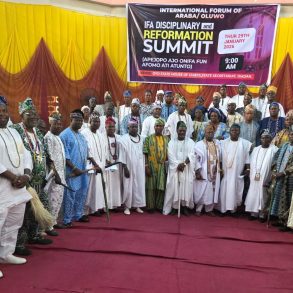August 3, 2024
By Samuel Ogunsona
The Southern Students Solidarity Movement (SSSM) has appealed to students participating in the ongoing protests to end violence and embrace dialogue with the Government.
In a statement released on Saturday, made available to The YorubaTimes, the group commended Lagos State Governor Babajide Sanwo-Olu for his swift response to hate speech in the state.
The SSSM, which represents students from 17 southern states, urged protesters to withdraw and give peace a chance. They warned that continued protests could lead to regime change and political instability.
The group’s president, Ologeh Joseph Chibu, and general secretary, Comrade Bolatito Akintunde, said they had contacted students on 50 campuses to retreat in the face of which has turned violent in some part of the country.
According to the statement, “We have contacted students in 50 campuses where we have our members across the 17 Southern States to retreat in the face of violence. By Monday, we promise that the country will witness a substantial decline. Without students, there can never be any successful protest.
“As students and future leaders, we acknowledge our responsibility in fostering peace, unity, and understanding. Today, we come together to call for immediate measures to promote peace and prevent further conflict in our beloved nation.”The statement reads.
The group said Nigeria is a country blessed with rich cultural diversity and a vibrant population of students whose future depends on peace and conflict prevention in Nigeria.
“Recent events have highlighted deep-seated issues that threaten our national cohesion and stability. Violence, ethnic clashes, and political unrest have become distressingly common, undermining our progress and development” he said adding that promoters of violence may explore the current fault lines to unleach mayhem on the country”
The SSSM believes that sustainable peace can only be achieved through justice, equality, and mutual respect among all Nigerians.
“We call on the Nigerian government, political leaders, traditional rulers, and all citizens to engage in constructive dialogue aimed at resolving disputes and addressing the underlying causes of conflict. It is essential to tackle issues such as poverty, unemployment, corruption, and social inequality that often fuel discord and violence. By addressing these root causes, we can pave the way for a more peaceful and inclusive Nigeria.”
To students and youths, the group urged them to be champions of peace within their schools, universities, and communities.
“Participate in activities that promote understanding and cooperation, educate yourselves and others on the importance of conflict resolution, and stand against any form of violence and discrimination. Our unified efforts can significantly contribute to a peaceful Nigeria.”






